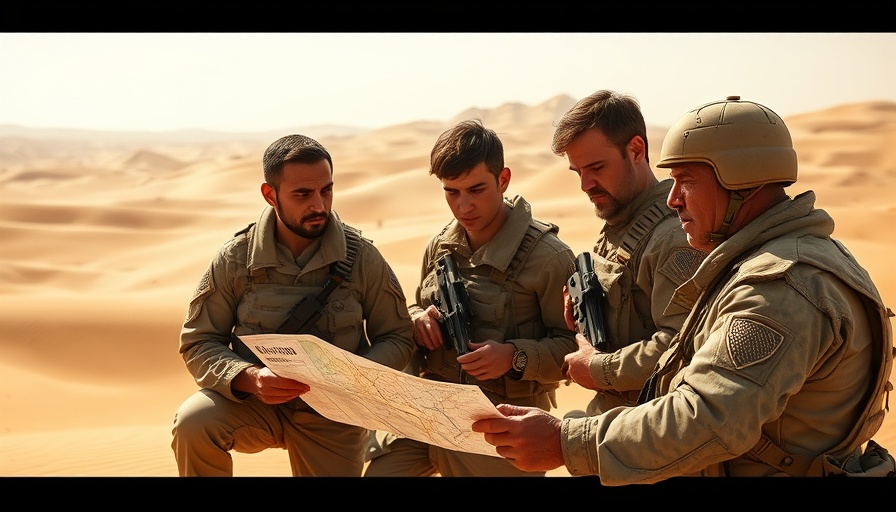
The Complex Relations of Leadership and Conflict in the Middle East
The dynamics of leadership in times of conflict, particularly in regions like the Middle East, have long been a topic of significant concern. From the challenges that leaders face in maintaining peace to the potential for war at any tipping point, it is vital for parents and guardians to understand these concepts, as they not only shape global relations but can also impact the daily lives of families.
Diving Deeper: Why Understanding War Matters
Why should parents consider the discussions surrounding war and leadership relevant to their children? The answer lies in education. Understanding the roots and consequences of conflict can foster a sense of empathy in young people. Through history lessons, discussions, and even family debates, children can learn about the implications of poor leadership choices made during times of war.
Leadership Lessons from War: A Cautionary Tale
The current leadership in parts of the Middle East exhibits a range of competencies, but as history has shown, not every leader is equipped to steer their nation towards recovery. As parents, we can draw parallels in our own lives—how we respond to challenges can shape the lives of those around us. Much like during a conflict, the principles of strong decision-making, responsibility, and foresight can change the trajectory of our children's lives.
Local Perspectives on Global Issues: Engaging with Community
While global issues may seem distant, they resonate locally. Communities can face similar leadership challenges and conflicts. Parents are encouraged to engage their children in discussions regarding their local leaders and decisions. By examining local governance, families can build a better understanding of authority and community resilience, all while learning how different choices impact our lives.
The Future: Preparing Kids for a Complex World
Looking ahead, it is crucial to equip our children with tools that promote critical thinking and resilience. Teach them about the importance of informed decision-making, both as citizens and consumers. Encourage conversations around the fluctuations of global markets and how they can lead to instability or peace. Being informed helps shape proactive leaders of tomorrow.
Facilitating Emotional Connections Through Education
There’s an emotional connection inherent in understanding the struggles of other communities. Stories of resilience can inspire our children and help them see the importance of diplomacy and cooperation. Share literature that dives into the history of the Middle East, exploring both the conflicts and the progress made. This helps children relate to the human aspect of these narratives and fosters a compassionate worldview.
Actionable Steps for Parents
As parents, there are several things you can do to foster a well-rounded understanding of leadership and conflict in your household. Initiate family discussions about current events, encourage exposure to diverse perspectives, and participate in local community events that promote dialogue. These interactions not only pique interest but also involve everyone in finding solutions.
Conclusion: Every Child Can Be a Leader
By instilling knowledge about the impacts of leadership—both positive and negative—parents prepare their children for a world that often feels fraught with conflict. Equip them to think critically, understand deeply, and engage positively. Their future is tied to a global narrative, and with your guidance, they can navigate it successfully. Consider exploring local programs that teach critical thinking or engage in community dialogues that provide skills for future leaders. Help them understand that every action has a reaction and that even small decisions can lead to meaningful change.
 Add Row
Add Row  Add
Add 




Write A Comment